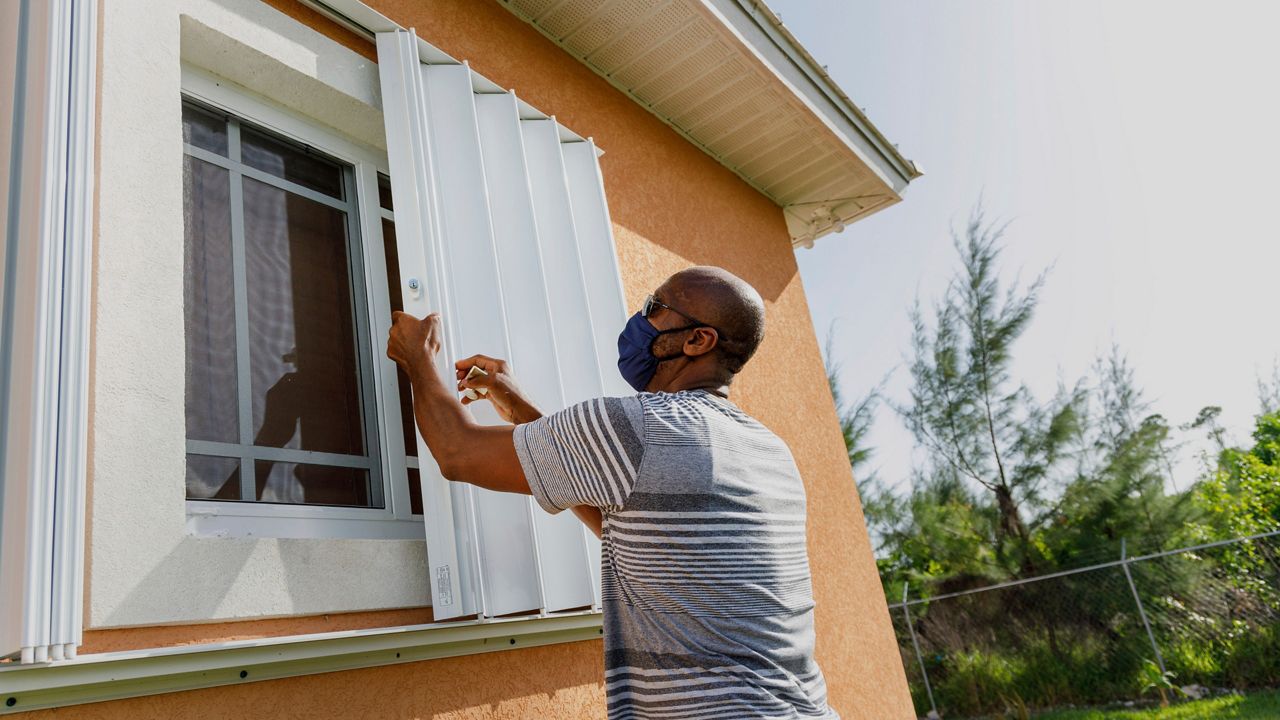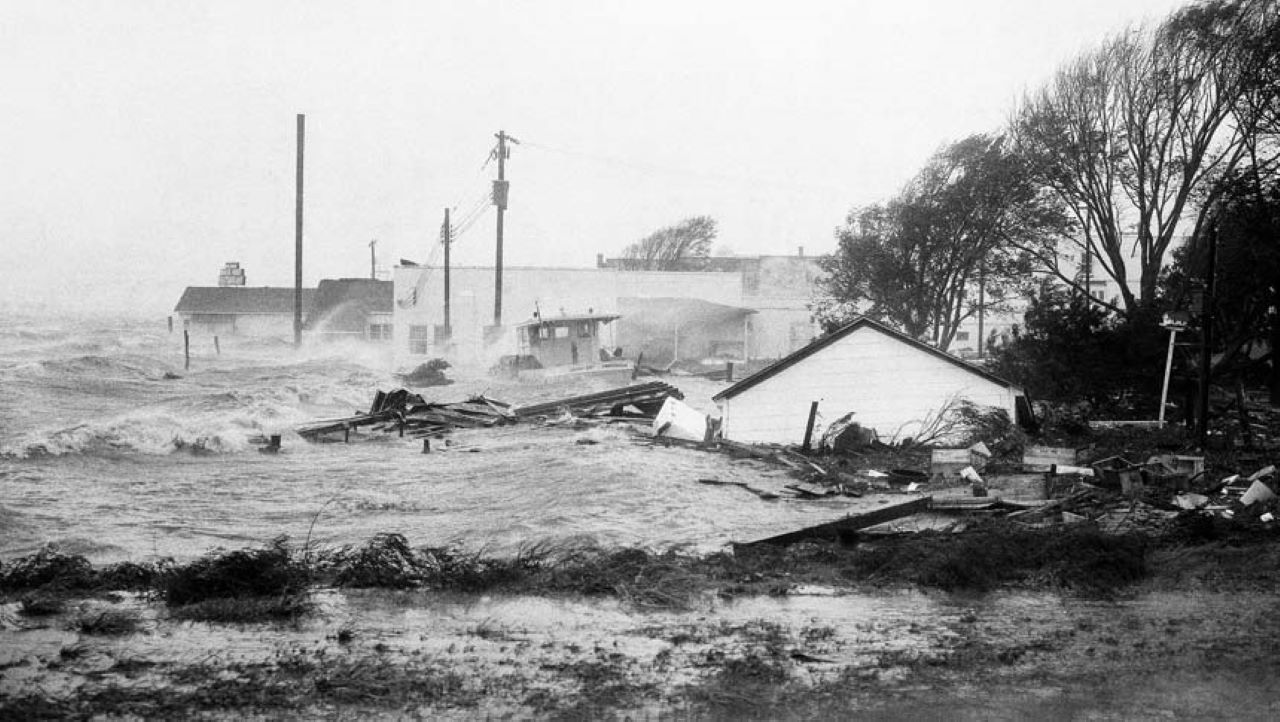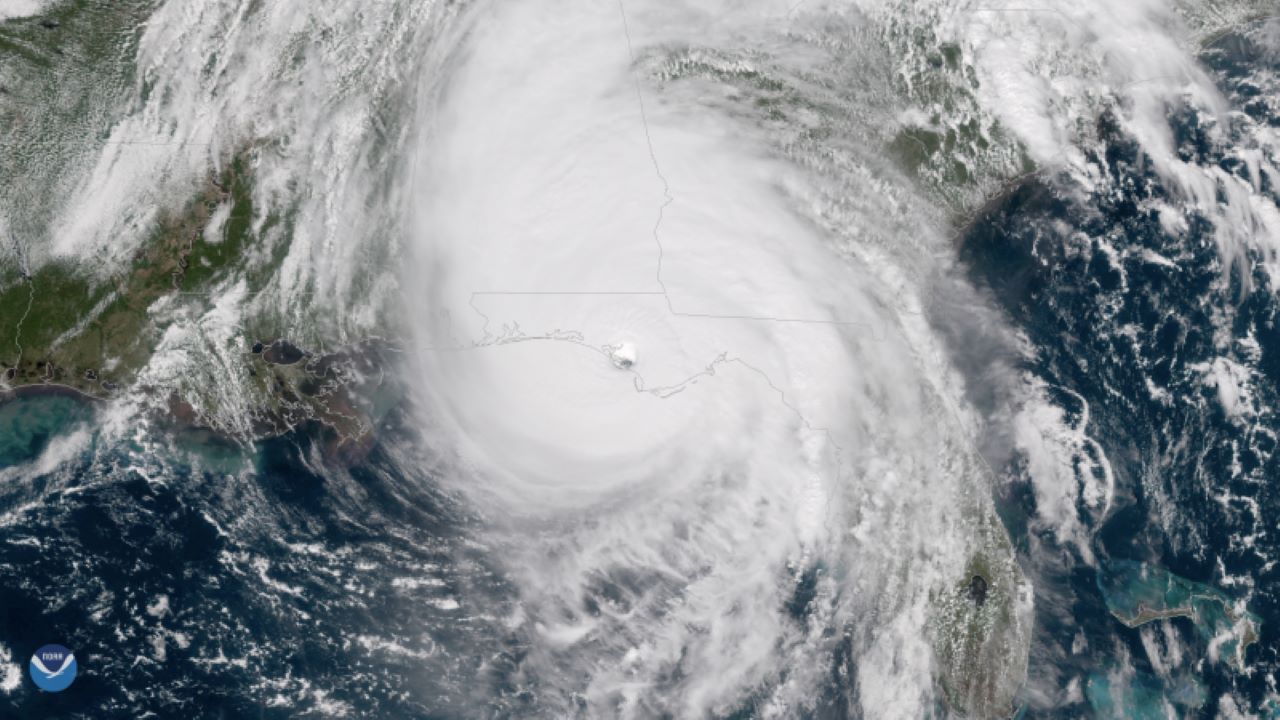When it comes to hurricanes, every Floridian is concerned about protecting their property. Whether it's a home or a business, here are some tips from the Insurance Institute for Business and Home Safety to make sure your biggest investments survive the storm.
Preparing your home
- Shutters: Install the hardware needed to put up shutters or pre-cut plywood to protect windows and doors now. This will allow for easier installation if the storm threatens your area.
- Surroundings: Bring in any loose items, such as garbage cans and lawn furniture, and pick up any debris in the yard that can act as a projectile during high winds, before a storm arrives.
- Trees: Trim your risk of damage by cutting weak tree branches, along with branches that are positioned over structures, which could be broken off by high winds and cause property damage.
- Seals: Make sure caulking around windows and doors is in good shape and not cracked, broken or missing, and fill any holes or gaps around pipes or wires that enter your building.
- Roofs: Inspect your roof and overhang to look for signs of wear or damage. Have your roof inspected to make sure the roof sheathing is well-connected.
- Attached Structures: Have porches, carports, entryway canopies and storage sheds inspected to make sure they are firmly attached and in sound structural condition.
- Sump Pumps & Drains: Inspect sump pumps and drains to ensure proper operation. If a sump pump has a battery backup, make sure the batteries are fresh or replace the batteries.
- Generators: Prepare and test your generator BEFORE a storm strikes.
Preparing your business
- Have your building(s) inspected and complete any maintenance needed to ensure your building can stand up to severe weather.
- Designate an employee to monitor weather reports and alert your team to the potential of severe weather.
- Review your business continuity plan and update as needed, including employee contact information. If you do not have a business continuity plan, consider IBHS’ free, easy-to-use business continuity plan toolkit for small businesses.
- Remind employees of key elements of the plan, including post-event communication procedures and work/payroll procedures. Make sure all employees have a paper copy of the plan. Review emergency shutdown and start-up procedures, such as electrical systems, with appropriate personnel, including alternates.
- If backup power such as a diesel generator is to be used, test your system and establish proper contracts with fuel suppliers for emergency fuel deliveries.
- Re-inspect and replenish emergency supplies inventory, since emergency supplies are often used during the offseason for non-emergency situations.
- Test all life safety equipment.
- Conduct training/simulation exercises for both your business continuity and emergency preparedness/response plans.
Dealing with Insurance
As you're assessing the damage to your home and property, making temporary repairs and beginning to file insurance claims, it's important that you file the claims as soon as possible but also be cautious of incredible repair deals that sound too good to be true.
“If an offer sounds too good to be true, it probably is and could be fraud,” CFO Jimmy Patronis said. “Opportunistic scammers may attempt to defraud Floridians following Hurricane Irma, and I encourage all Floridians to be vigilant in guarding against fraud.”
Here are some tips for Floridians to navigate the insurance claims process:
- Notify your insurance company first. Many insurance companies have reporting deadlines, so it is important to act quickly. Take steps to make temporary repairs that prevent further damage, but remain in contact with your insurance company regarding any outside vendors that are brought in to make repairs. Here is a PDF from the Office of Insurance Regulation for insurance company claim numbers and websites, or call the state consumer insurance helpline at 1-877-693-5236. The help line is available from 8 a.m. to 5 p.m. ET.
- While making temporary repairs, get the licensing or training credentials of all third-party vendors before signing any work documents. Hire only licensed and reputable vendors. Go to the Department of Business and Professional Regulation’s contractor license lookup page to check to see if they're properly licensed and bonded.
- Fully review all documentation you are asked to sign and ask questions to make sure you understand the agreements you are signing. Ask specifically who is responsible for paying the vendor, you as the consumer, or your insurance company.
- If considering the assistance of a public insurance adjuster, ask for identification to verify that the adjuster is licensed. You can also
- Understand how much a public insurance adjuster charges as well as what services are included before signing any contract.
- Report any suspicious activity at 1-877-693-5236.
SOURCES: Insurance Institute for Business and Home Safety; Florida Department of Financial Services







